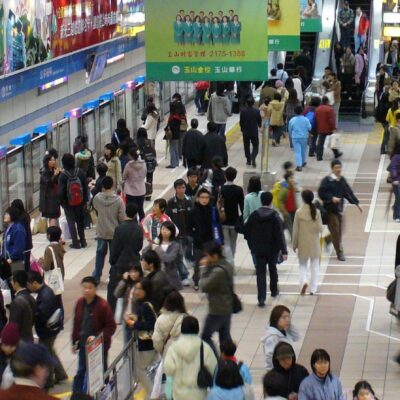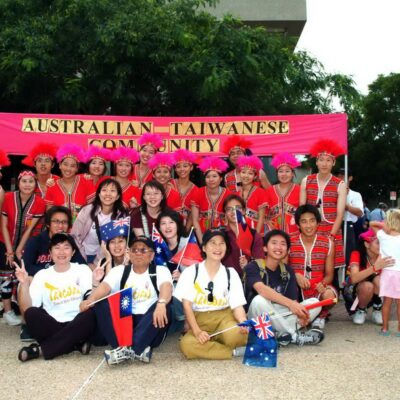Indonesian could be considered the poster child for the failing narrative of languages studies in Australian education. Languages such as Indonesian are at risk as language programs in universities, and schools, struggle to survive, despite clear economic opportunities. The now well-established mantra of ‘learn an Asian language and get a job’ does not appear to be cutting through with young people. Returning to models of earlier Asian languages and studies initiatives is not the answer. We need to rethink the narrative and move beyond a neoliberal ‘skills’ framing towards languages education with social and ethical imperatives.
In the past decade, the economic and employability agenda within universities has become more intense. Within this neo-liberal paradigm, languages programs have struggled to find a place. Some programs are framed as ‘value-add’ with competencies and graduate qualities such as interpersonal communication and intercultural understanding. Some languages such as Chinese, have aligned with areas such as Business and Engineering, and others have attempted to develop industry partnerships and consultancies, such as French in the context of Australian defence.
A review of recent conference programs related to languages education (tertiary and to some extent in schooling), shows a significant number of papers with the prefix ‘re-‘ or wording related to ‘new’ in their titles. Common terms include ‘rethinking, reframing, reimagining, renewing, redoing’ just to name a few. These are not whimsical linguistic choices but reflect a deep-seated concern in the field that languages education is at a pivotal, indeed defining moment.
Indicators of the state of the field such as student enrolments and programs in universities and schools show a decline across the board (despite some growth in some community languages) and efforts to advocate (e.g. LCNAU Languages Campaign are underway to shore things up). There are suggestions that the problem may lie with the languages on offer and that well-established (some might say ‘Global North’) languages such as French and Italian may need to give way to languages of more recently arrived (‘Global South’) communities such as Gujarati and Arabic.
What’s the situation for Indonesian?
Indonesian was introduced over 50 years ago, as part of an Australian security strategy involving strengthening collaboration with the fledgling independent democracy of Indonesia. The language was offered primarily through Asian Studies programs in universities, typically in Social Sciences departments. Many of the teachers were social scientists, anthropologists, economists and literature and cultural studies specialists; few were applied linguists or language teaching specialists. Not being a ‘community language’, Indonesian is largely studied by students who have little or no family or heritage connection with the language. Some have studied it at school and may have travelled to or studied short courses in Indonesia. Students come from a range of disciplines, with the most common being Arts, Education, Development Studies, and Law.
The narrative associated with Indonesian typically goes as follows: Indonesia is our nearest Asian neighbour, it is the largest Muslim nation, an emerging economic powerhouse and crucially located at the juncture between east and west, and therefore key to security in our region. Plus, Indonesian is an ‘easy’ Asian language, using Romanised script and having minimal ‘complex’ grammar (see Scholar Dwi Noverini Djenar for a critique)! The rationale, therefore, to study Indonesian is strongly geo-political and economic with the added bonus of ‘ease’. For a small cohort of students, this line of thinking resonates, and some go on to have careers based in or closely related to Indonesia. Programs such as the federal government’s New Colombo Plan (NCP) have been beneficial in supporting such students and enhancing their experiences and potential opportunities, while acting as a form of soft diplomacy in bilateral relations.
But, the narrative of economic opportunity is clearly not resonating with students more widely and indeed, declining enrolments are further endangering programs. If the prospect of economic gain is not inspiring young people to take up learning Indonesian, then what might?
What are the alternatives?
Language is the fundamental medium through which humans comprehend, represent, construct and exchange knowledge and ways of being within communities. It is a social as well as cognitive process. When we learn a language, we are learning the means and ways of communicating with others. We are learning the shared meanings of particular groups and the knowledges they have produced. Language is the mediating form by which people make sense of the world and existence, as they understand it. Different languages are not just ways to express the world as it is—as if it were the same for all—but they are the means by which different worlds and ways of being in those worlds are represented and communicated to others. As such, learning a language involves entering into a new meaning system and ways of communicating, plus new knowledge and ways of being in the world. Diverse languages offer possibilities for diverse knowledges and ways of living; and these are crucial to imagining and realising new paradigms and ways forward for humanity.
Furthermore, learning an additional language to one’s first/home language, necessarily involves comparison and connections, noticing and reflecting on how meaning is expressed and how it travels, or not, across languages and cultures. This process means that language learners, as emerging bi- or multilinguals, will notice their own language and ideas about the world. An intercultural orientation to language learning invites students to actively notice and make connections across the languages and cultures with which they are operating; that is, to observe and reflect on their own language use, their linguistic repertoire. Students consider not only how they might express themselves, making choices in the languages they know, but also who they might choose to be, with whom, when and where. That is, extending one’s language repertoire offers expanded ways of interacting and being in the world. Language(s) learning has the potential to not just imagine new lives, but to live them through enacting new language practices and ways of being. Young people can take on alternative perspectives and experience diversity through language learning and using, developing a critical and ethical lens that enables them to consider matters of justice and equity in their own and other communities.
In this way, language(s) learning can legitimately and substantively contribute to enhancing diversity and creating a more equitable and socially just world. Language(s) learning of this kind is more a matter of ‘learning how to mean’ and ‘learning to be’ in worlds beyond one’s own, than it is a set of skills to communicate with others. There is potential for a more critical, ethical and political rationale, that seeks to change the individual and society for the better through language(s) learning.
What might this look like? An Indonesian example
In rethinking the narrative for languages education, we need to start with considering what are we aiming to achieve. Since the late 1970s, the purpose of language learning in education has primarily been to communicate in the target language with native speakers. This rationale has various difficulties such as largely being a proposition that defers authentic interaction until students can travel in-country (for some languages interaction is now more possible through digital technologies), and for some students, particularly in compulsory education, there is no desire to travel to places where the language is spoken. Furthermore, the time required to achieve sufficient proficiency to communicate on substantive matters or tasks such as those in work-related domains, is far greater than time currently allocated. In addition, the affordances of technologies such as GoogleGlass to support in situ communication pose legitimate questions about the need to learn the language in order to communicate.
Given the changing nature of communication practices scholars such as Claire Kramsch, Emerita Professor of German at University of California, Berkley, argue that our purpose needs to be more focused on social and political action. Kramsch proposes the goal of ‘symbolic competence’, a goal that foregrounds learning how language shapes meaning, how it operates in specific contexts and in certain interests. She suggests that learning a language in order to understand the power of language, learning to critically analyse how it operates, and learning to harness it in ways that foster greater equity and social justice are more pressing and meaningful purposes for languages education.
What would such a purpose look like in language teaching? Let’s return to Indonesian to consider an example. Firstly, the program goals and objectives would need to be reoriented from skills acquisition (listening, speaking, reading and writing) to objectives related to constructing, analysing and mediating meaning. There would need to be a focus on both using language and understanding how it works as a dynamic meaning-making resource with real-world consequences. Importantly, developing a deep understanding of how culture relates to language and meaning is integral to such goals. This is not a sense of culture as ‘high culture’ (e.g. literary canon), nor culture as ‘facts and information’ (e.g. everyday practices and traditions), but rather culture as shared meanings and interpretive resources that members of groups use in interacting with one another.
Secondly, the program content and learning experiences need to be carefully designed to address social and political matters of import. This would involve selecting textual material that stimulates exploration of dilemmas, debates and perspectives that are pertinent to understanding the community, and that also resonate within students’ own lives. For example, Indonesia has experienced significant political transformation over the previous century, from a largely agrarian archipelagic region under colonial rule to a modern democracy under self-rule. This transformation has come with challenges not least being inequality, dispossession of land and suppression of local languages and cultures. Such issues are reflected in literature and textual material available in Indonesian (recognising that this is a constructed, standardised language used primarily in the public domain).
Let’s consider a specific example. The short story, ‘Kecelakaan’ (The Accident) by famous Indonesian author Mochtar Lubis, presents an account of a collision between a wealthy businessman, driving his black Mercedes, and an old man, driving a dilapidated horse and cart. The businessman accuses the old man of causing the accident, and demands he pay reparations. The old man clearly cannot afford to pay, and instead asks that the businessman just take his life instead. It is a confronting story of a clash of realities, of inequality and injustice, and one that cleverly challenges the social mores and political leadership of Indonesia during the Sukarno era. But it is not just a story of its time; it is a story of our time. It is precisely this kind of text that could be explored, through an intercultural orientation, with young people; inviting diverse perspectives and personal reflection about students’ own society, actions and values in ways that encourage them to act. What parallels do they see? What do they make, for example, of the gig economy, or phenomena such as the courier and ride-sharing service gojek? What might students do about this, in their local context, in an Indonesian context, in a global context? This example draws on literature however it is not to advocate a literary studies approach, but rather to adopt an orientation to all texts that engage young people in questions of morality, society and ideology with a view to taking ethical action.
What is needed to realise an alternative narrative?
To create an alternative narrative for language(s) studies in education, we need to start with ourselves. We need to adopt a critical stance to prevailing narratives and to our own interactions with students and our institutions, as well as in our research, publications and media contributions. We need to check our framings: What kind of image of Indonesia, of Indonesian, and of language learning are we presenting?
We also need to reorient our courses towards an intercultural stance that engages young people in big ideas such as equality, justice, truth, community, that have transformative potential. In the case of Indonesian, we need to be bold in engaging with ideas that have profoundly shaped the language(s) and culture(s) such as struggle, revolution, inequality, corruption, faith and diversity. The social justice focus also comes back to the learner; always with a view to what this means for them, and what actions they may take as a result. Our courses need to include experiences that will provoke and pose ethical questions that help young people identify how they will work towards making society better.
Narratives are not just talk, they are grounded in experience, and it will be crucial that Indonesian and other language educators have appropriate expertise in this kind of program development and teaching. The expertise of the language teaching profession has been eroded over recent decades, and there is a need to reinvigorate and reinvest in language teacher education. There is a role here for government to enable a new narrative and provide support for the re-energising needed. Universities also need to consider what kind of view they have of language(s) learning and whether they have the imagination and courage to foreground ethical action and social justice in their missions; and position language(s) learning as key to this.
Languages are a skill, but they are much more. They are about the personal and social world—about broadening one’s knowledge base and seeing and being in the world in new ways. Language learning is about developing openness, thinking flexibly and critically because meaning cannot be taken for granted. Language learners, taught in this way, can imagine not only their own reality as having other possibilities but that reality itself may be different. In the century ahead, we will need ‘practical’ solutions, but underlying this is our capacity to work with one another, to share and create knowledge and adapt to new ways of being. Language(s) learning, as understood within this alternative narrative, has the potential to do this.
Image: Gojek driver waiting for passenger. Credit: Afif Ramdhasuma on Unsplash




